By Bram Peters
The Foresight4Food FoSTr team has just returned from an active and productive trip to Kenya, despite the challenging political situation in the country. From our perspective, this highlights the need to adapt to turbulence and to use foresight to build resilience for Kenya’s food system.
From June 19 to 26, together with my team members including Jim Woodhill, Herman Brouwer, and Wangeci Gitata-Kiriga we conducted a range of food systems foresight workshops in Nairobi and Nakuru with a wide range of national food systems stakeholders. Here is a brief update on the action.
Navigating turbulence
On the morning of June 19, Foresight4Food, together with partners ILRI–CGIAR, Results for Africa Initiative and University of Nairobi, organised two sessions in Nairobi. The interactive breakfast session was all about ‘Navigating agri-business in turbulent futures’. The session was co-hosted by IFAD Kenya and was attended by a range of private sector associations, business support services, innovation facilitators and impact investors.
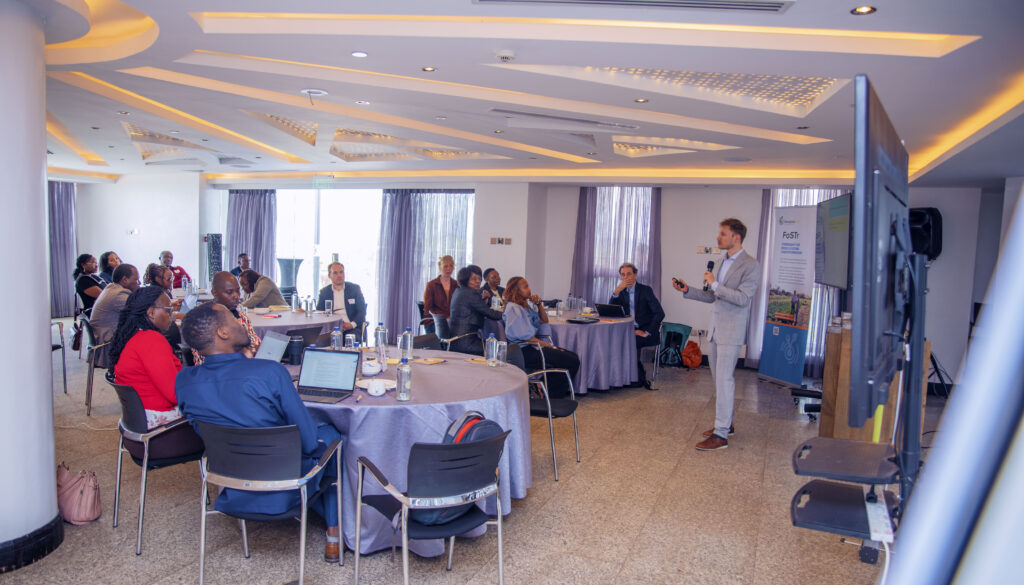
The focus of the meeting was to introduce the topic of foresight in relation to agribusiness in Kenya, share some of the scenarios that were developed in the context of Nakuru, and discuss the implications of different futures of the food system. Participants were shown five different scenarios of how the food system might look in 2040 in Nakuru and were invited to think through and discuss the implications of these scenarios.
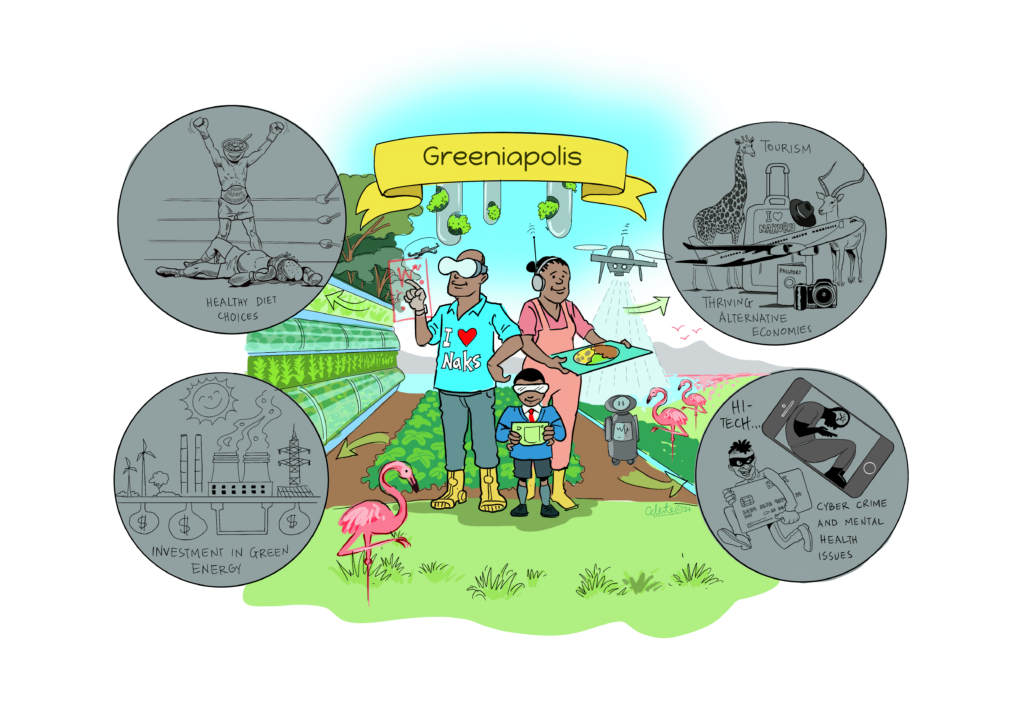
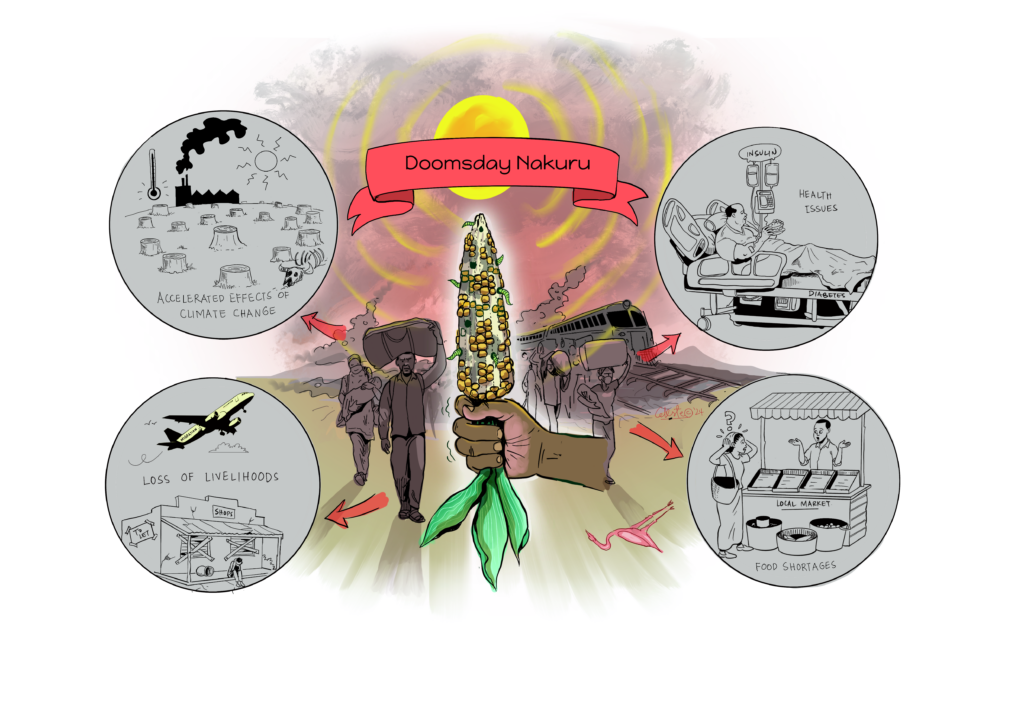
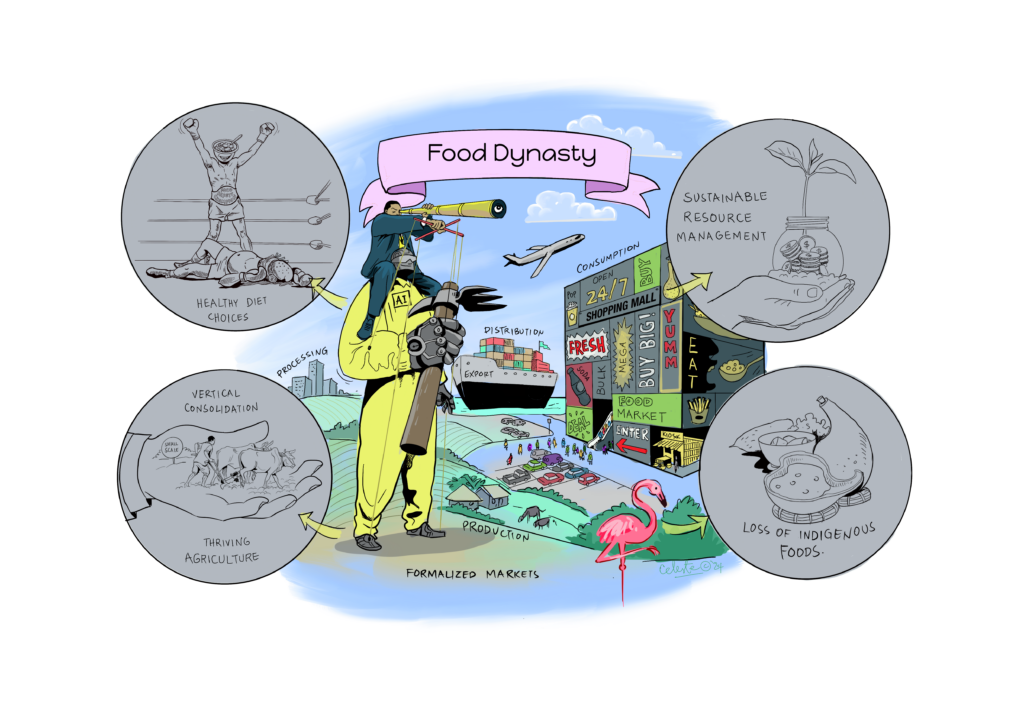
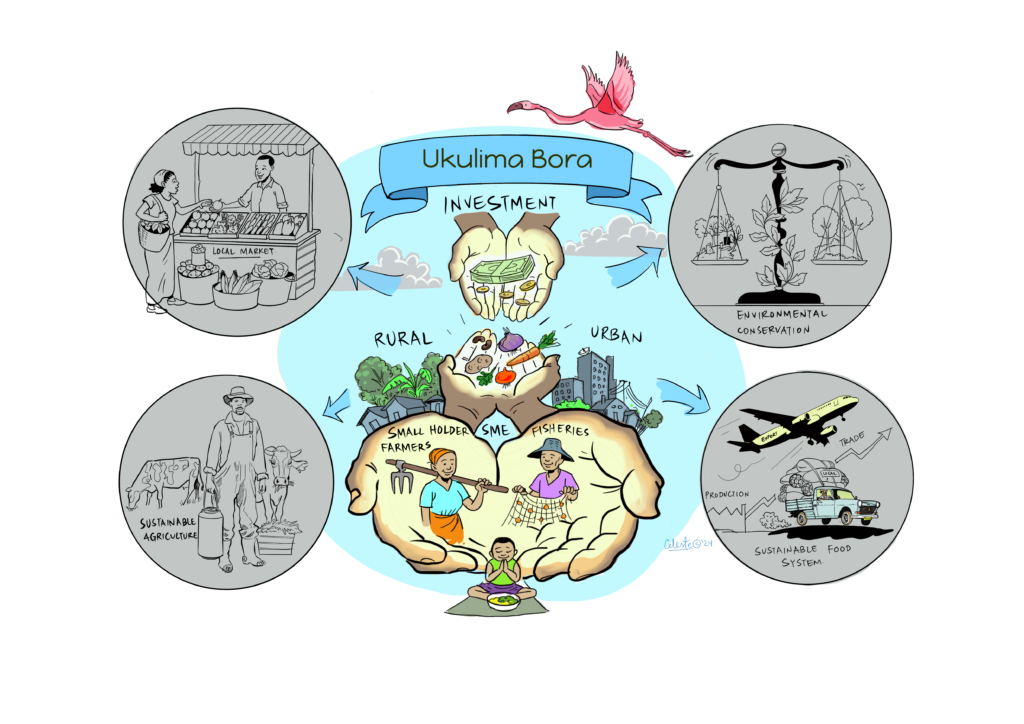
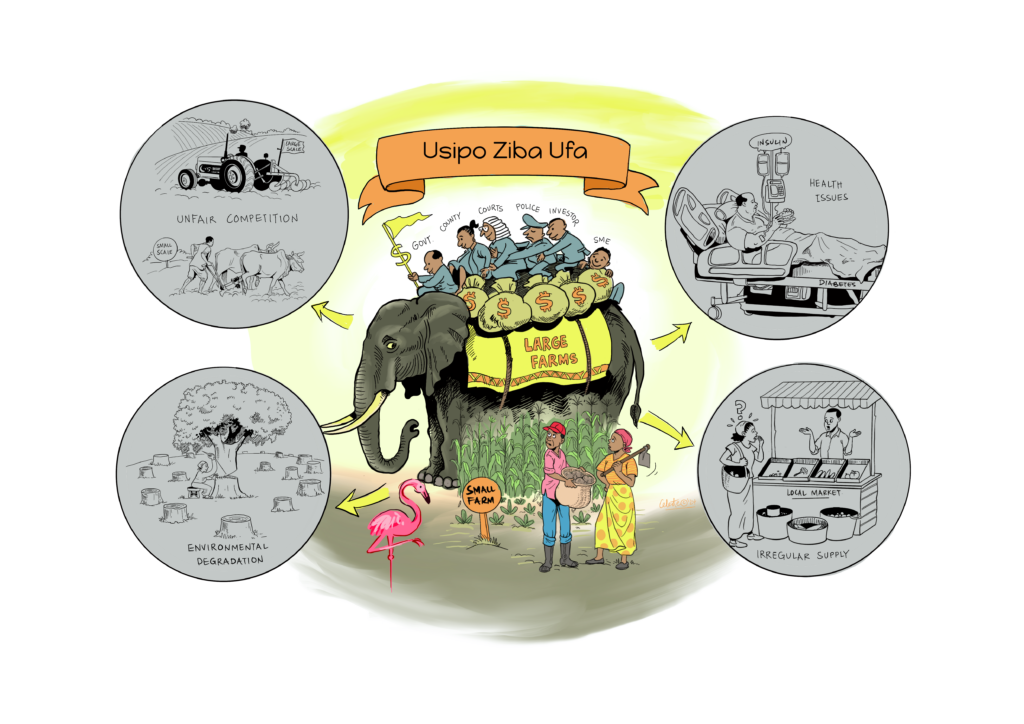
With a strong presence and involvement of leaders from various private sector associations such as the Agriculture Sector Network (ASNET) of the Kenya Private Sector Alliance, the discussion invited stakeholders to reflect not only on trends and uncertainties emerging in Kenya, but also how their own businesses are preparing for the future.
Supporting the pathways for food system transformation
In the afternoon of June 19, the FoSTr team organised a national update session on the progress of FoSTr since June 2023. The session was attended by many individuals from the morning session, as well as representatives from government, civil society and research organisations. The FoSTr team presented the latest updates, including the launch of a ‘Kenya Food Systems Mapping Report’, and with a collection of scenarios for the Nakuru food system.
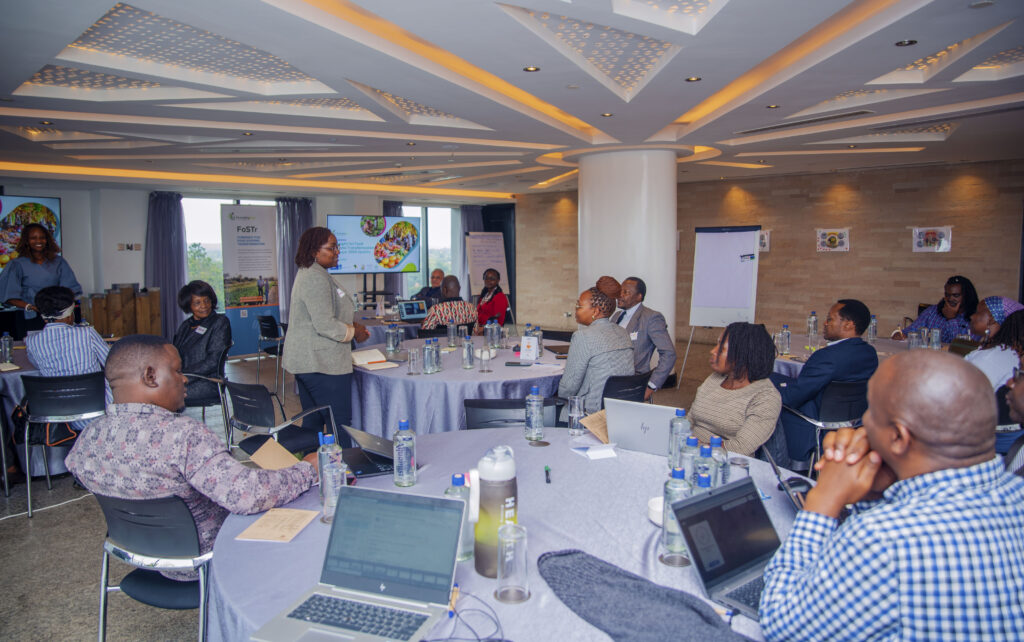
With a special presentation by the Ministry of Agriculture and the Food Systems Technical Working Group and special remarks from IFAD on the 3FS tool, it was discussed how a wide range of ecosystem support initiatives are buttressing the national food systems transformation pathways in Kenya. The approach by Foresight4Food to engage with two counties, Nakuru and Marsabit, and to build on Bottom-up initiatives showed how our approach complements the ongoing national-level initiatives.
Systemic Theory of Change
From June 19 to 21, the Foresight4Food FoSTr team facilitated a 3-day workshop for the inception phase of the new Netherlands-funded, World Food Programme and UNESCO on ‘Sustainably Unlocking the Potential of Lake Turkana. Stakeholder representatives from the Lake Turkana region (both on the Marsabit and Turkana sides of the lake) gathered in Nairobi to engage in a shared analysis of the complex food system and co-create the high-level focus of the programme.
The Turkana Lake food system is highly complex, with high food insecurity, vulnerability to climate change and conflict, and many cultural dynamics around pastoralist and fisheries livelihoods. Finding market opportunities and strengthening resilience is not easy, and requires a different way of working. Using the Foresight4Food approach, and building on 6 scenarios that were developed in previous workshops in Marsabit and Turkana, stakeholders explored what might need to be done to understand systemic risks and how lasting opportunities can be triggered.
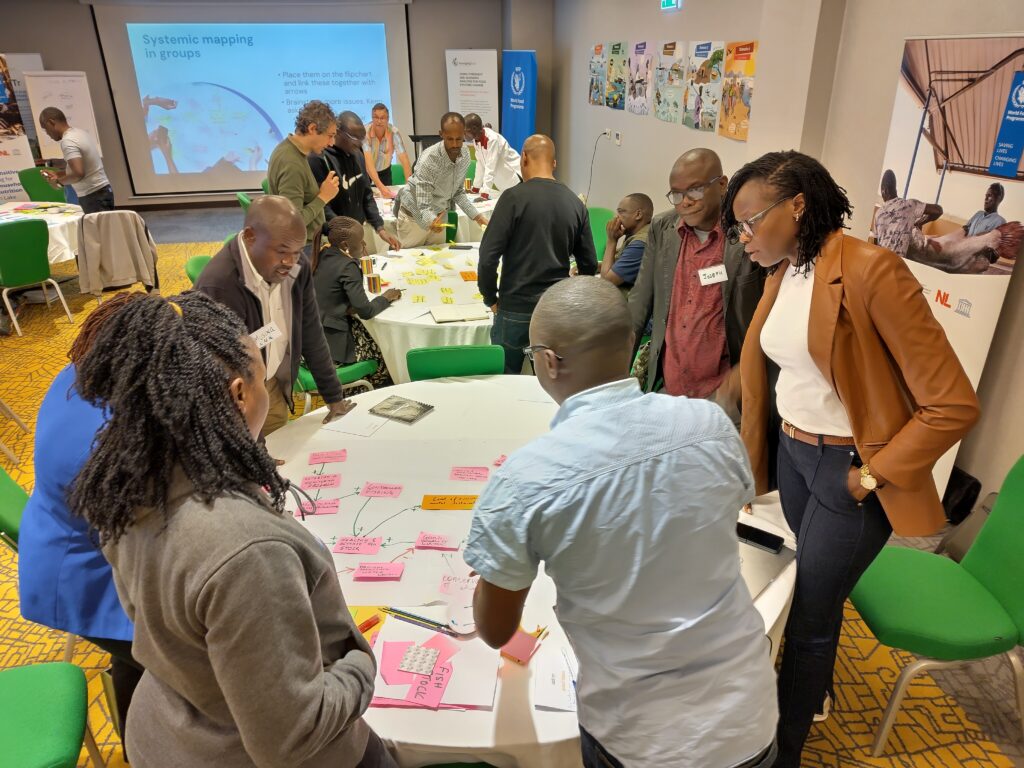
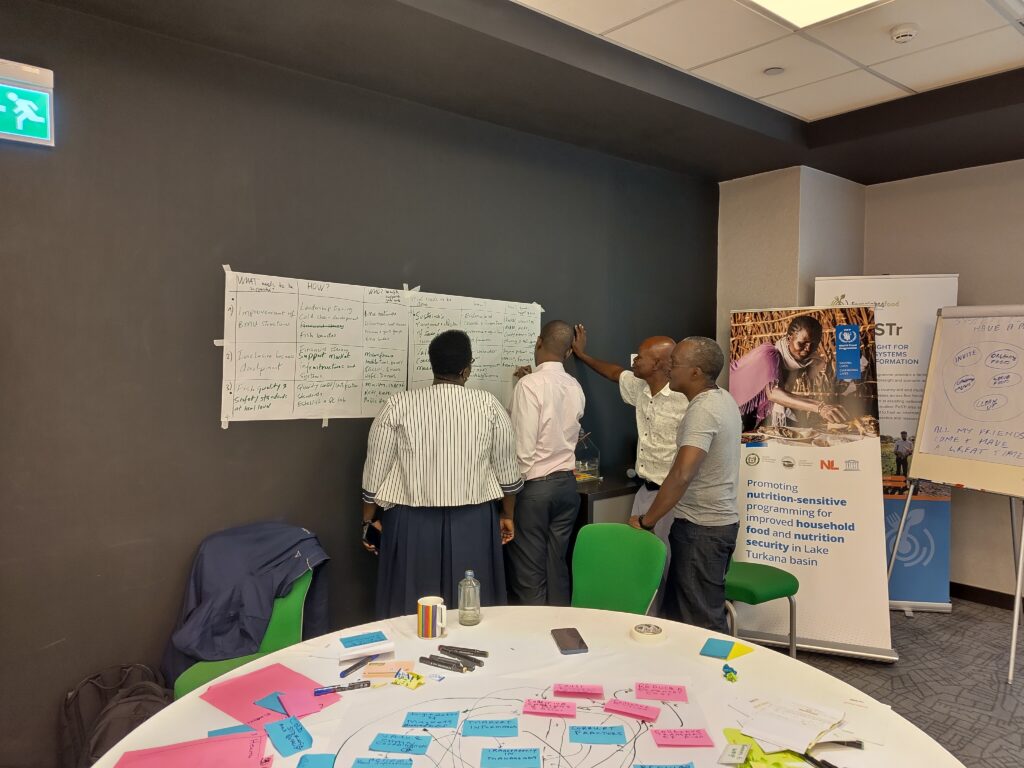
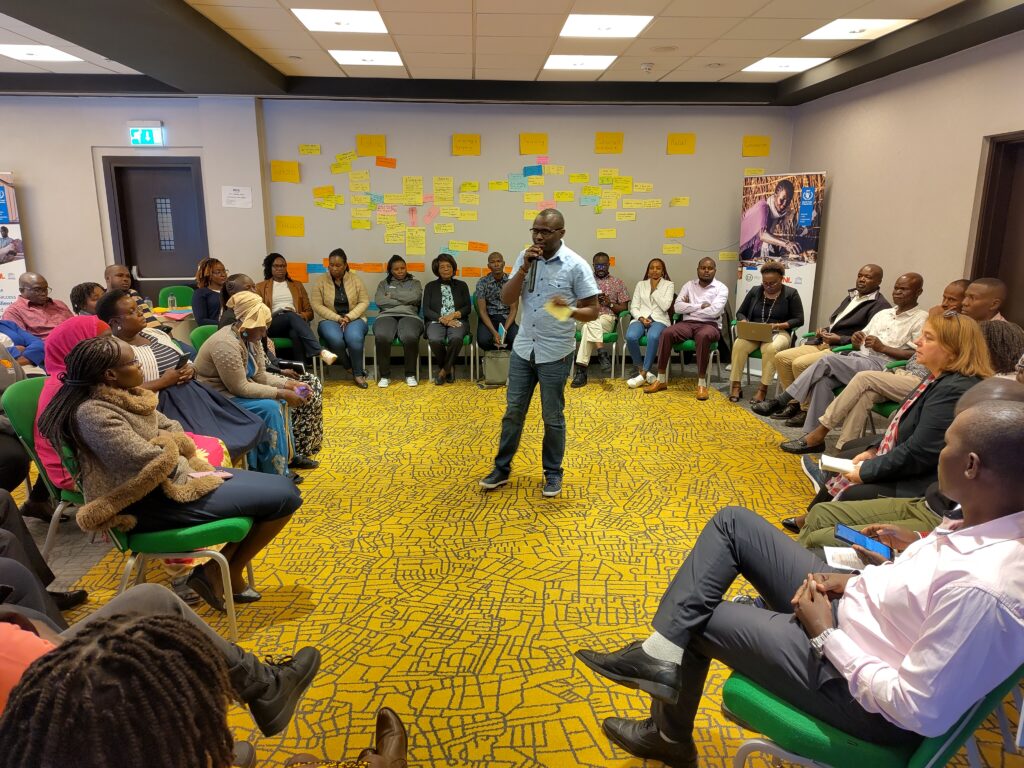
Preparing a Systemic ToC is all about analysing the context, articulating the transformations needed in light of various future scenarios, and developing the building blocks for action. The building blocks include pathways, processes and partnerships. Through many interactive discussions and exercises, the stakeholders conducted value chain mapping of the fish value chain, CATWOVE for articulating systemic change narratives, and Causal Loop Mapping.
Manifesto for Change for the Nakuru Food System
On June 24 and 25, the FoSTr team including partners ILRI-CGIAR, Results for Africa Initiative and University of Nairobi once again visited Nakuru, now to explore systemic change pathways. As we already noted from previous workshops, the food system of Nakuru County is full of potential, as Nakuru’s natural resources are rich and a wide range of agricultural value chains are represented. However, challenges related to food and nutrition security and environmental sustainability exist. Trends of climate change, unhealthy diets and land fragmentation are appearing. The future holds many uncertainties. In order to future-proof the food system, it is urgent that investments are made to further enhance the resilience and sustainability of food and agriculture in Nakuru.
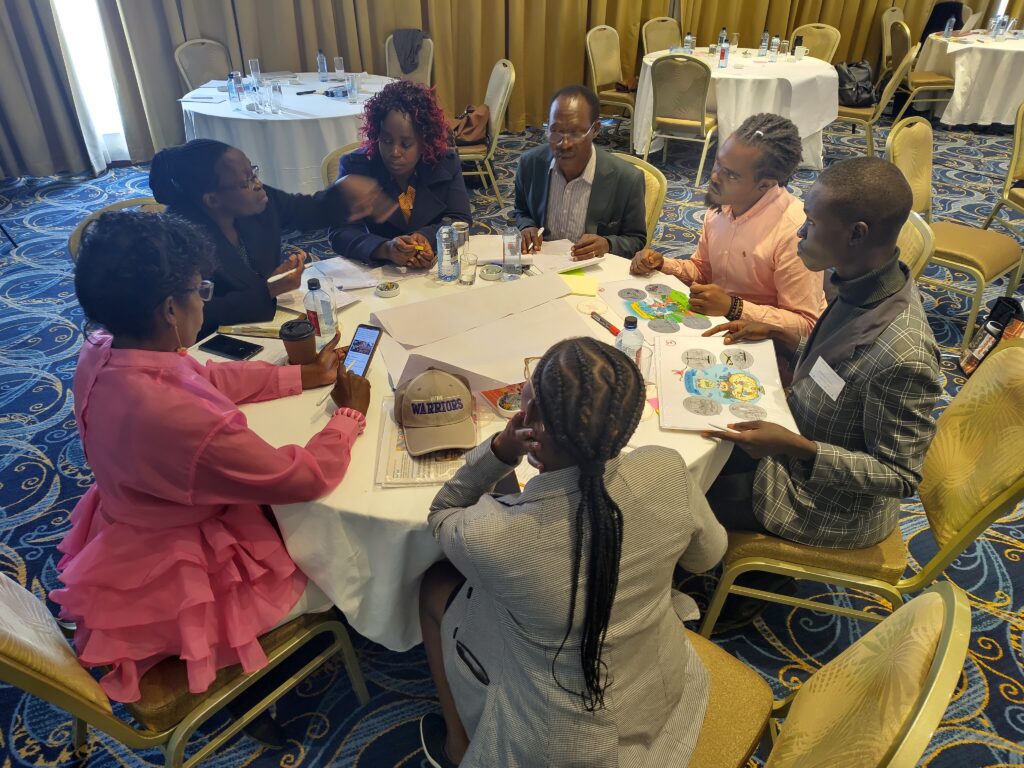
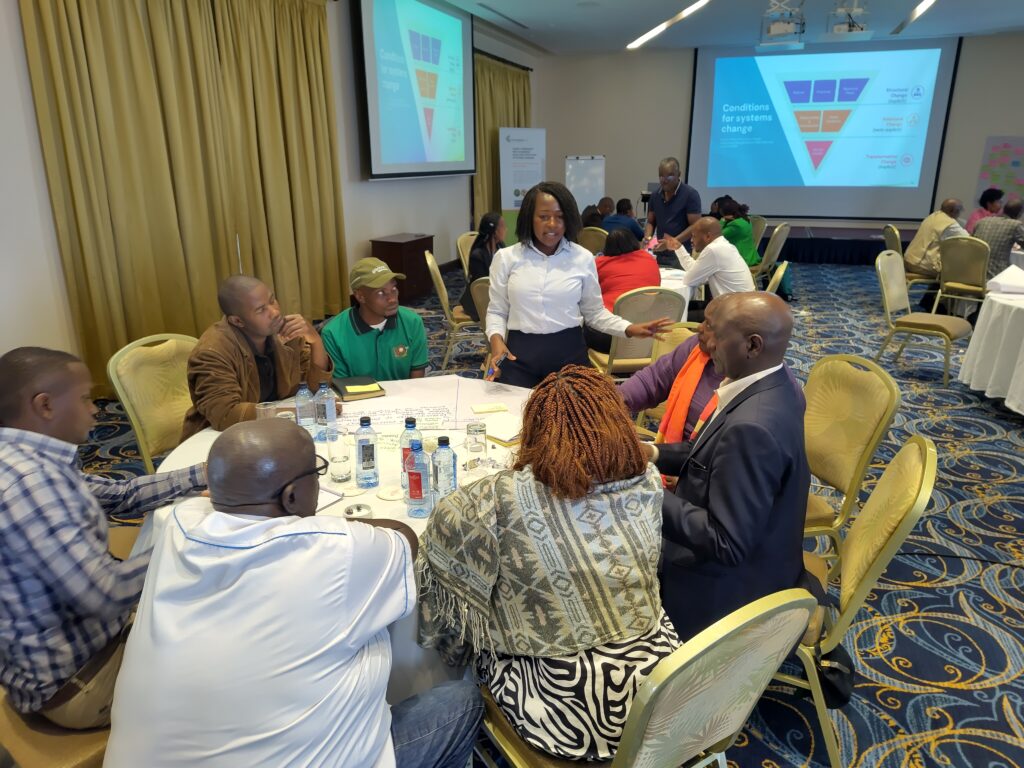
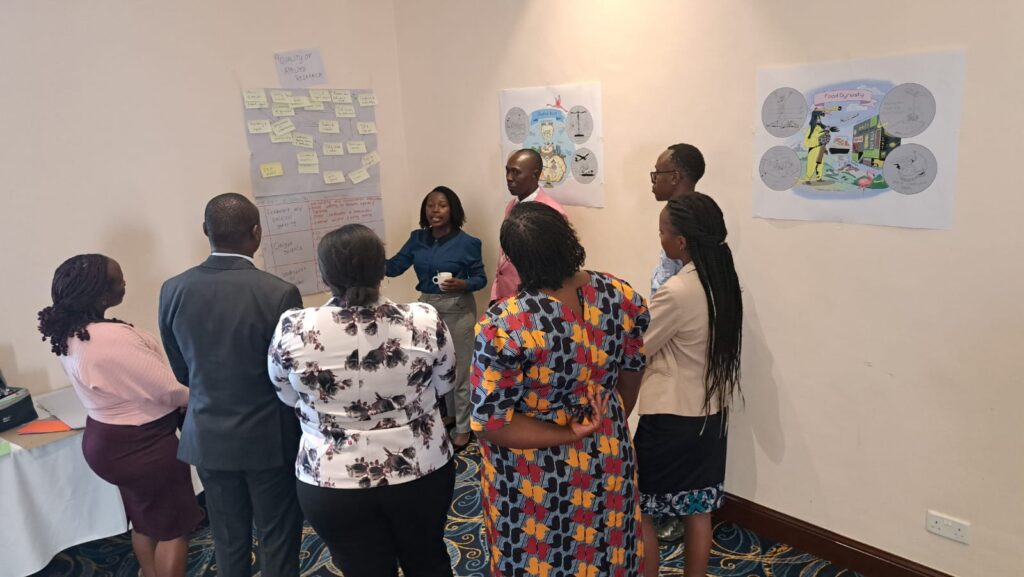
Since November 2023, a diverse group of more than 40 different stakeholders from Nakuru county have been coming together to consider the future of food system, supported by researchers and facilitators of Foresight4Food. This inclusive group looked at the challenges and opportunities for food and agriculture today and how they might evolve in 10-15 years. Food system analysis, an assessment of drivers and trends relevant to Nakuru, and 5 scenarios were developed by this group.
During these two days, stakeholders from Nakuru engaged in scenario interpretation and Causal Loop diagramming to come up with key pathways to kickstart food system transformation in Nakuru. These outputs culminated in a Manifesto for Change: a vision for the desired future for Nakuru’s food system and a range of possible pathways that can set us in that direction, while preparing us for a range of uncertainties. The Manifesto calls upon all stakeholders to join and align their actions, and intensify collaboration to transform Nakuru’s food system so that it can feed its people nutritiously; advance economic development; restore balance with nature; grow in-county revenue and eventually GDP growth for Kenya.